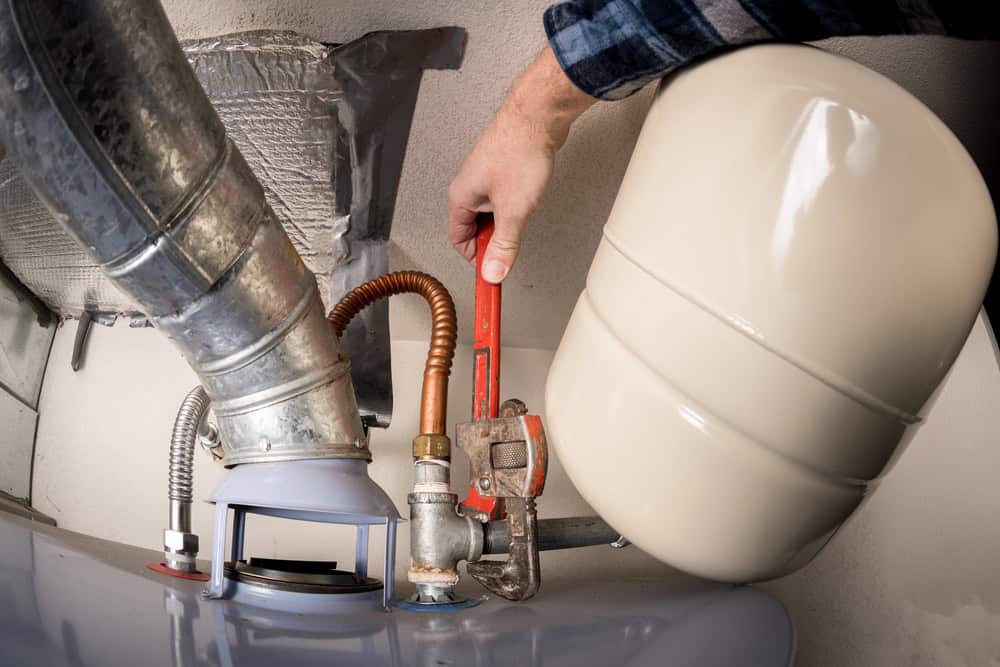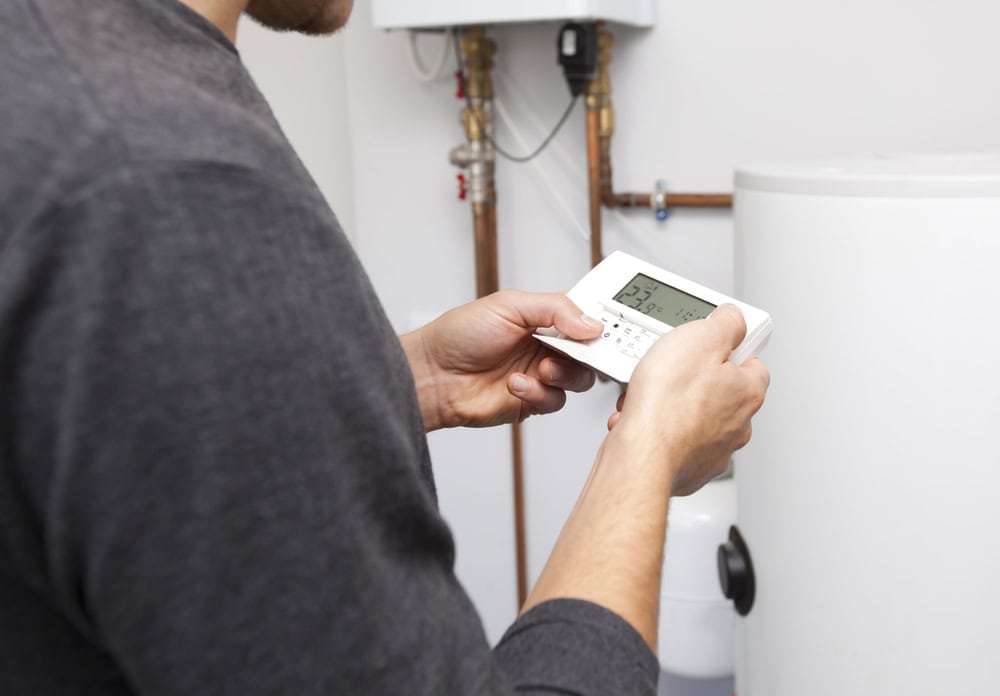Water heaters are essential appliances in our homes, providing comfort and convenience when it comes to hot showers, clean dishes, and laundry.
When they fail to heat water, it can quickly become a frustrating experience. Let’s explore some common reasons behind this issue, along with easy troubleshooting tips.
Check the Power Supply
One of the first things to investigate is whether your water heater is receiving power.
Electric water heaters require a dedicated circuit, and if there’s an issue with the circuit breaker or fuse, the unit won’t operate.
Head to your circuit board and look for any tripped breakers. If you find one, reset it and see if that brings your heater back to life.
If it keeps tripping, you might be facing a more serious electrical problem that requires a professional’s attention.
Thermostat Troubles
Another common culprit for a lack of hot water could be the thermostat. Most water heaters come equipped with two thermostats—one for the upper element and one for the lower element.
If the upper thermostat is malfunctioning, it won’t signal the heating element to turn on.
To troubleshoot this, you can access your water heater’s thermostat and check its settings or replace it if necessary.
Make sure to turn off the power supply before doing this to avoid any electrical hazards!
Heating Element Issues
Electric water heaters rely on one or more heating elements to raise the temperature of the water. If one of these elements fails, you may experience lukewarm or cold water.
To test the heating elements, you can use a multimeter. If you find that an element is faulty, replacing it can restore your heater’s functionality.
Keep in mind that heating elements can wear out over time, so if your heater is older, it might be worth checking both elements.
Sediment Build-Up
Over time, sediment can accumulate at the bottom of your water heater, especially in areas with hard water.
This build-up can insulate the water from the heating element, leading to inefficient heating.
Flushing the tank can help remove this sediment. To do this, turn off the heater and connect a garden hose to the drain valve.
Open the valve and let the water run until it runs clear. This maintenance task can significantly improve your heater’s performance.
Pilot Light Problems
For gas water heaters, the pilot light plays a crucial role in heating the water. If the pilot light is out, your heater won’t produce hot water.
Check the pilot light assembly; if it’s extinguished, you’ll need to reignite it according to the manufacturer’s instructions.
If the pilot keeps going out, there may be a problem with the thermocouple, which is a safety device that detects the pilot light.
A faulty thermocouple should be replaced to ensure safe operation.
Gas Supply Issues
If you have a gas water heater, ensure that the gas supply is consistent. Sometimes, gas valves can be inadvertently turned off or malfunction.
Check the valve to ensure that it’s open. If you suspect a gas supply issue, contact your local gas company for assistance.
Gas leaks can be dangerous, so always be cautious and alert for any unusual odors.
Age of the Water Heater
Water heaters do not last forever; their lifespan typically ranges from 8 to 12 years depending on the model and maintenance.
If your heater is nearing the end of its lifespan, it may struggle to provide consistent hot water.
In this case, you might want to evaluate whether a replacement is more cost-effective than ongoing repairs. Investing in a new unit may save you money in the long run.
Pressure Relief Valve
The pressure relief valve prevents excessive pressure build-up inside the tank, which can lead to dangerous situations.
If this valve is malfunctioning, it could affect the water temperature.
Water leaking from the valve or a noticeably hot surface may indicate that it needs replacement. Regularly checking this valve can help keep your water heater operating safely.
Wiring and Connections

Electrical connections wear out over time, which can cause power disruptions to your heater. Check all wiring and connections for signs of corrosion or damage.
If you notice any issues, it’s best to consult a professional electrician for repairs. Ensuring secure and clean connections can often restore functionality.
Insulation and Location
The location of your water heater can also play a role in its efficiency.
If it’s situated in a cold area, such as a garage or basement, the surrounding temperature can affect its ability to heat water.
Insulating the tank and the surrounding pipes can help retain heat and improve efficiency. Some homeowners opt for tank wraps or pipe insulation to mitigate heat loss.
Faulty Expansion Tank
If your system includes an expansion tank, a malfunction here can lead to pressure issues that affect heating.
An expansion tank absorbs excess pressure, and if it’s not functioning, it can cause hot water to escape, leading to inadequate heating.
Inspecting and possibly replacing the expansion tank can resolve these complications.
Water Heater Settings
Sometimes, the simplest explanation is the correct one. Check the temperature setting on your water heater.
The recommended setting is typically around 120°F (49°C) for most households.
If it’s set lower, you might not get the hot water you expect. Adjust the thermostat and give it a few hours to see if the hot water returns.
Maintenance Routine
A consistent maintenance routine can help prevent many of these common issues.
Regular inspections, flushing the tank, and checking the anode rod can extend the life of your water heater.
Anode rods attract corrosive elements in the water, preventing tank corrosion. Replacing this rod every couple of years can significantly enhance your heater’s longevity.
Professional Help
When all else fails, calling a professional may be your best option. Plumbers and technicians have the expertise and experience to diagnose and fix complicated water heater issues.
For expert service for pipes, taps, and hot water, it’s important to choose a service provider who can not only resolve your immediate issues but also ensure long-term efficiency and safety.
They can also help with installations or replacements if needed. Having an expert assess your water heater can provide peace of mind and ensure everything operates smoothly.



